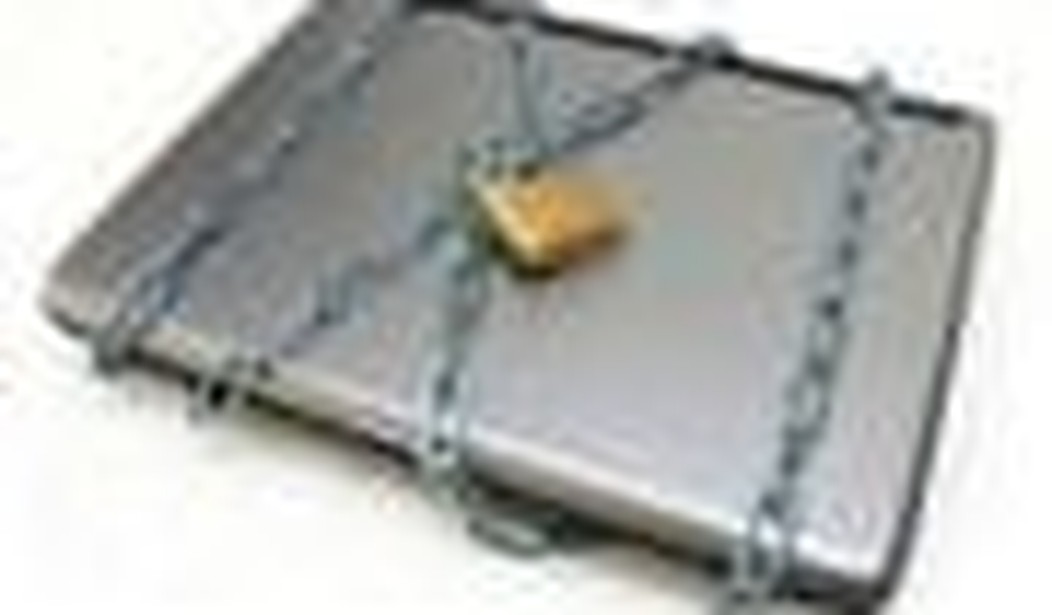We don’t hear much about “the Anglosphere” anymore. The term was coined after 9/11 to distinguish freedom-loving Western allies from those nations sympathetic or indifferent to Islamic jihad.
Sadly, the Anglosphere’s cheerleaders have since learned that the West isn’t always a reliable champion of liberty, either. Two “Anglospheric” nations in particular — Australia and Canada — have revealed a troubling urge to stifle free speech, especially on the Internet.
Recently, for example, Canada’s ruling Conservative government introduced the Investigative Powers for the 21st Century (IP21C) Act.
The act, observes Dr. Michael Geist, “is pretty much exactly what law enforcement has been demanding and privacy groups have been fearing.”
Geist is the Canada Research Chair of Internet and E-commerce Law at the University of Ottawa and an internationally recognized expert on technology law. He warns that the act “will embed broad new surveillance capabilities in the Canadian Internet.”
First, IP21C would force Internet service providers (ISPs) to install expensive surveillance systems on their networks, supposedly to combat child pornographers.
“This feels a bit like a surveillance stimulus package,” remarks Geist, “with ISPs making big new investments” and the government promising the inevitable raft of grants and other goodies to ensure their compliance. Naturally, taxpayers will foot the bill.
Smaller ISPs will be exempt from this onerous requirement for three years, but as Geist says, that exemption “undermines the claims that [the act] is an effective solution to online crime”; criminals will simply continue doing “business” through those smaller ISPs, while developing ways to get around the new surveillance systems.
Equally troubling, the act also gives Canadian police wide-ranging new powers. ISPs will be obliged to surrender customer names, addresses, IP addresses, and email addresses on demand, without a warrant. “Preservation orders” will require ISPs to refrain from deleting subscriber information, while “tracking warrants” will let police “remotely activate tracking devices that are found in certain types of technologies such as cell phones.”
Canada’s Ezra Levant has become the nation’s most high-profile critic of any clampdowns on the free flow of information. After publishing the notorious “Danish Mohammed” cartoons in his now-defunct magazine, Levant’s battles against the country’s so-called human rights commissions made him the bane of government censors, do-gooders, and busybodies.
Now ever-attuned to threats to free speech around the world, Levant quickly weighed in when another Commonwealth country announced its own ham-fisted attempts to police the web.
“Australia’s government nannies have officially banned 1,370 websites,” explains Levant, and anyone who links to a blacklisted site can be fined AUS$11,000 a day.
At first, though, the Australian government refused to tell anyone what these websites were, because that would violate its own ban. You’d only find out you’d broken the law after you linked to a banned site.
But, of course, the blacklist was duly leaked and published on a government watchdog site called Wikileaks. So now there are 1,370 banned sites in Australia — plus one: Wikileaks.
“The Australian blacklist wasn’t written by a court,” adds Levant, himself a lawyer. “There was no hearing where evidence was brought that these sites were criminal sites.”
For instance, poker-playing sites are heavily represented on the blacklist, even though such sites aren’t illegal. Most confusing is the inclusion of www.vanborkhorst.nl, a Dutch company that rents forklifts. (Who knows? Perhaps a dimwitted yet dirty-minded Aussie bureaucrat mistook the words “fork” and “poker” for something earthier.)
“The Canadian Human Rights Commission wants an Internet blacklist, too,” Levant adds, referring to his one-time arch-nemesis, which apparently hasn’t learned much following its humiliating run-in with the former publisher. “It wants to expand Canada’s www.cybertip.ca to cover political sites, not just child porn sites it targets now.”
Internet law is in its infancy and technology is hackable, so how such government crackdowns will ultimately affect American websites and ordinary “surfers” is impossible to say. But Americans who believe their First Amendment protects them from similar interference from their own government are mistaken.
The Cybersecurity Act of 2009, now in committee, “risks giving the federal government unprecedented power over the Internet,” says Jennifer Granick of the Electronic Frontier Foundation.
Among other things, the act gives the president the authority to shut down Internet traffic (run mostly on privately owned networks) in an emergency — with “emergency” left undefined.
As well, the Commerce Department would have “absolute, non-emergency” access to “all relevant data”; like its Canadian equivalent, the Cybersecurity Act allows authorities access to this data without judicial review.
Others are concerned about President Obama’s choice to lead the White House Office of Information and Regulatory Affairs, Harvard Law Professor Cass Sunstein. As Paul Hsieh reported earlier this year for Pajamas Media, Sunstein’s book Nudge posits a philosophy of “libertarian paternalism”: that it is government’s role to “nudge” its citizens into behaving in a particular fashion — for their own good, of course.
If “nudging” sounds like a cuddly synonym for “creeping government control,” there’s a reason for that. Sunstein’s forthcoming book, On Rumors: How Falsehoods Spread, Why We Believe Them, What Can Be Done, he argues for the passage of a “notice and take down law,” to force websites to remove “falsehoods” from their pages upon government request. These “falsehoods” would include remarks left by anonymous commenters.
“A ‘chilling effect’ on those who would spread destructive falsehoods can be an excellent idea,” writes Sunstein — words that should in turn chill anyone who values lively debate about the issues of the day. Is denial of “global warming” a “destructive falsehood,” for example? Apparently, Sunstein considers the government a reliable arbiter of such decisions.
Americans may laugh at Australia’s ham-fisted attempts to control the Internet or presume that, if passed, Canada’s proposed legislation won’t affect them. But it is safe to assume that the powers that be are watching what other countries do with great interest. When someone as matter-of-factly pro-censorship as Cass Sunstein has the ear of the president of the United States and the draconian Cybersecurity Act is on its way to being passed, Americans must remain vigilant if they want the Internet to remain a robust tool for debate and dissent.









Join the conversation as a VIP Member